SSD Performance
Performance of the 250GB Samsung 840 EVO SSD is strong. The sequential and 4K speeds are positive, both with incompressible and compressible data.
We were a little surprised to see OcUK using the older Samsung 840 EVO SSD rather than the company's newer 850 EVO model. Performance numbers suggest that the 840 EVO is no slouch and will deliver quick game loading times, but it would have been nice to see the newest model being used, especially with the 840 EVO's slowdown issues.
HDD Performance
The 2TB Seagate SSHD uses 8GB of MLC flash (basically a small SSD) to speed up specific processes. For example, a frequently-accessed game file may be pushed into the SSD cache in order to reduce its loading time.
Sequential transfer rates of the SSHD are decent, although by no means market-leading. However, the drive's 4K performance is higher than we would see from a pure HDD (thanks to its MLC flash component), although nowhere near SSD level.
That combination of characteristics makes the SSHD a potentially smart choice for gamers with Steam collections too large to justify using valuable SSD-based storage capacity. The SSHD does, however, come with a ~30% price increase over a bare HDD without the SSD cache.
USB 3.0
We tested USB 3.0 performance using the Kingston HyperX 3K SSD connected to a SATA 6Gb/s to USB 3.0 adapter powered by an ASMedia ASM1053 controller.
USB 3.0 ports running through MSI's X99S SLI Plus motherboard do not support UASP when using Windows 7. As such, the transfer rates shown by the X99-based ports are notably slower than those found on competing systems that are able to make use of UASP.
Connections running through the ASMedia ASM1042 and VIA VL805 chipsets are slower again, although should be sufficient for interaction with external HDDs (not SSDs). It is best to stick to the X99-fed connections when transferring large chunks of data.
 KitGuru KitGuru.net – Tech News | Hardware News | Hardware Reviews | IOS | Mobile | Gaming | Graphics Cards
KitGuru KitGuru.net – Tech News | Hardware News | Hardware Reviews | IOS | Mobile | Gaming | Graphics Cards


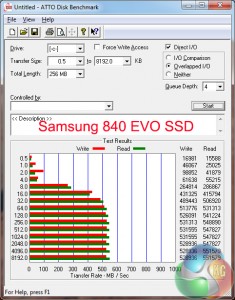
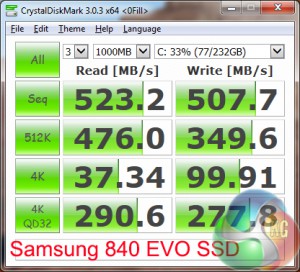
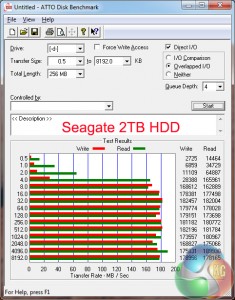
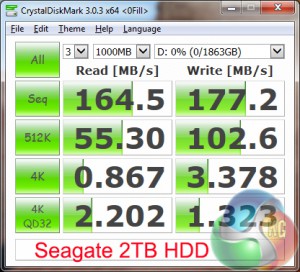
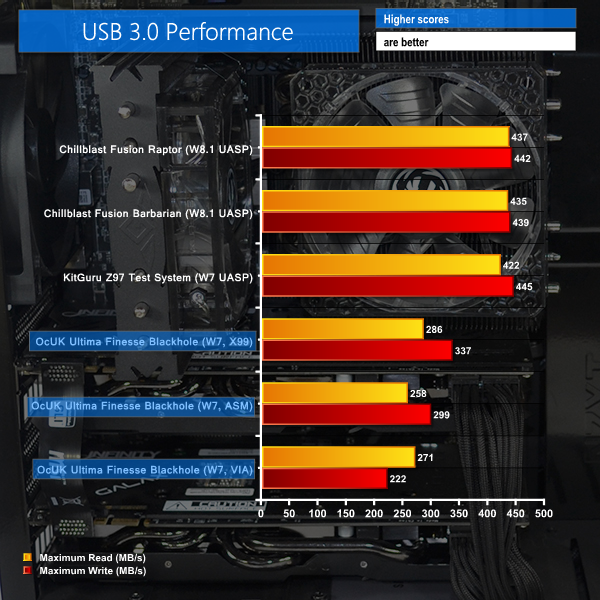
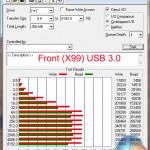
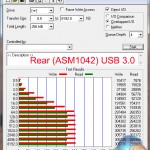
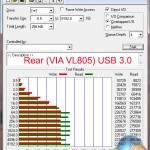
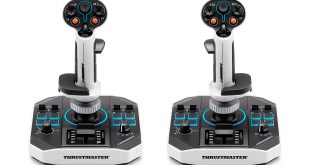
Gotta love those BitFenix fans!